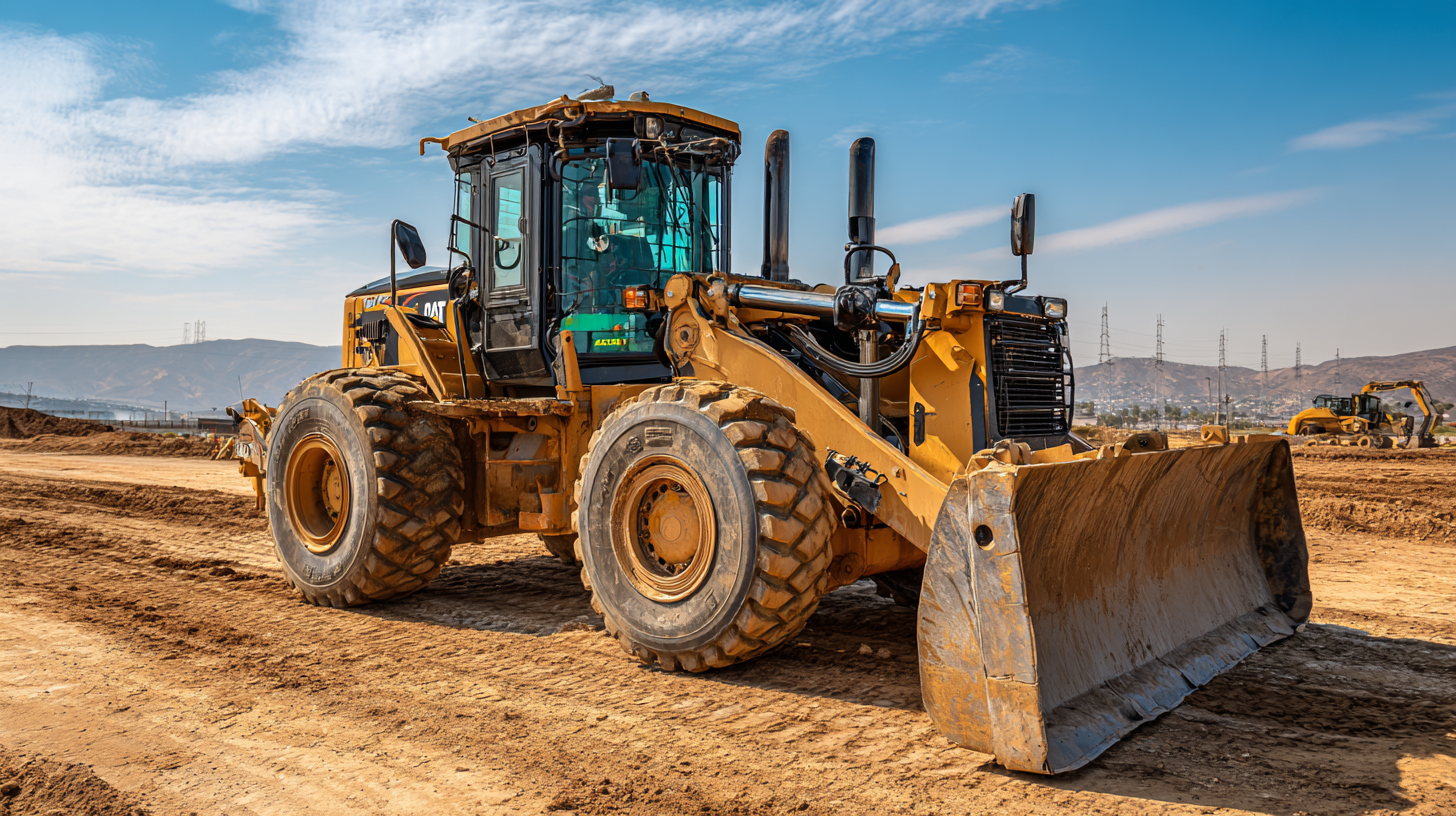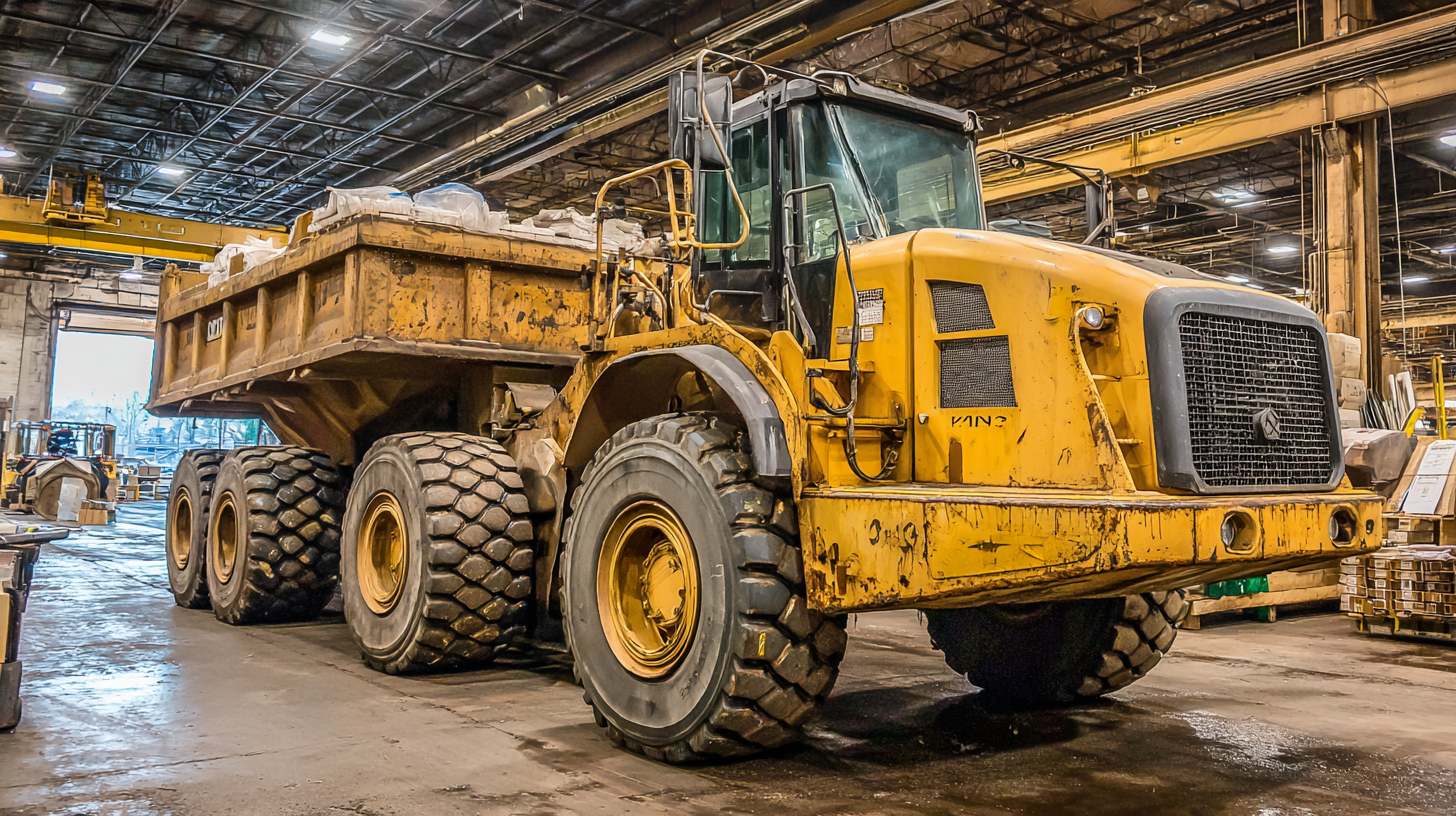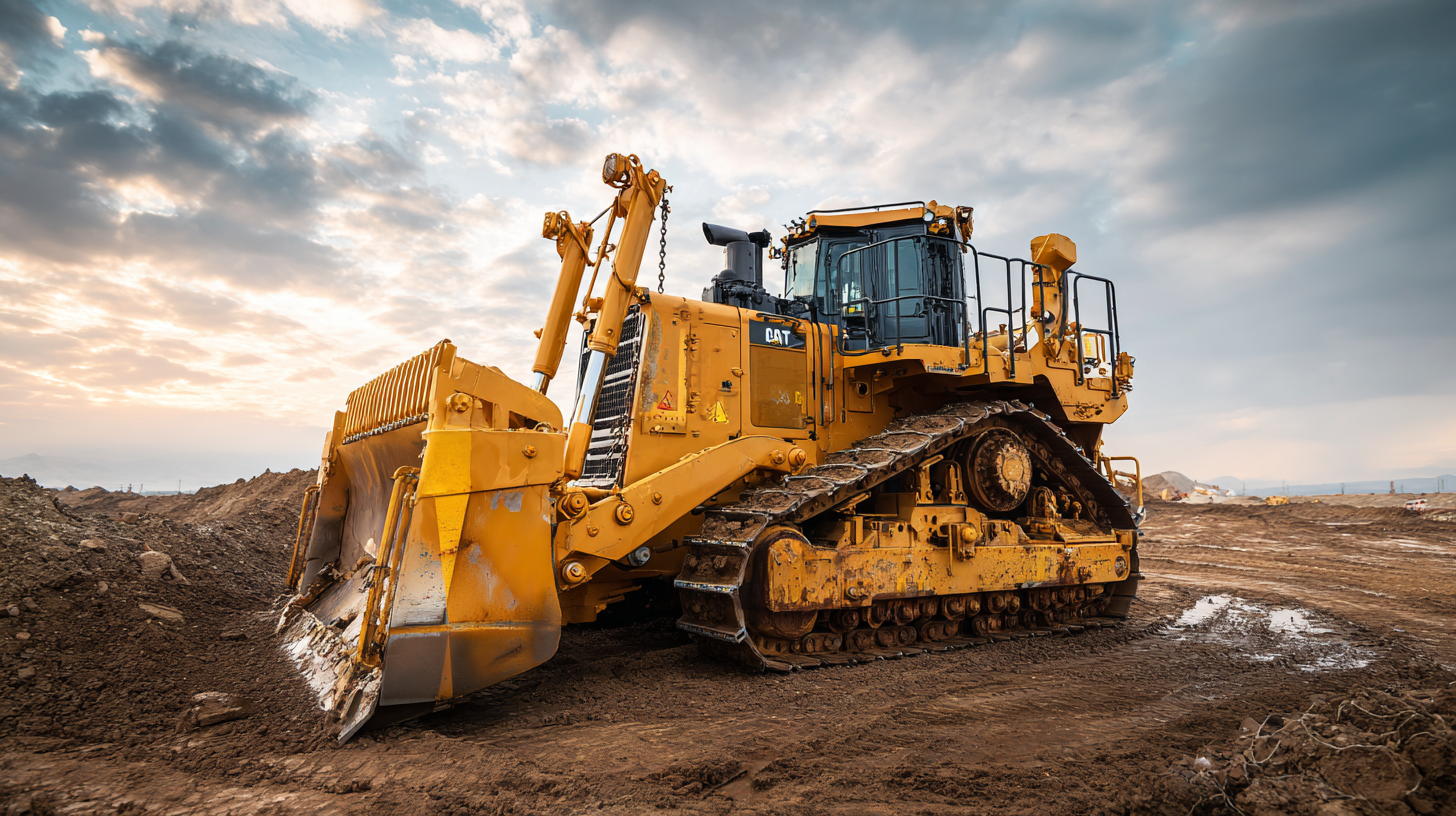Leave Your Message
- Phone
- E-mail
- Whatsapp
In an era where the global construction and mining sectors are witnessing unprecedented growth, the demand for skilled Heavy Equipment Operators has surged significantly. According to a report from the International Labour Organization, the construction industry is projected to grow by 5.4% annually, leading to an increase in the need for specialized operators capable of efficiently managing complex machinery. The ongoing advancements in technology, particularly in automation and equipment sophistication, necessitate a workforce skilled in operating not only traditional heavy machinery but also modern, high-tech equipment. With China leading the charge in manufacturing and exporting heavy machinery, the emphasis on quality and skill has never been more critical. This ultimate checklist aims to equip employers globally with the insights and strategies necessary to source the best Heavy Equipment Operators, ensuring projects are executed with precision and efficiency in this competitive landscape.

When sourcing heavy equipment operators globally, it is essential to understand the key skills that vary across different regions. Operators must be well-versed in both technical and safety standards, which differ significantly from country to country. For instance, while some regions prioritize proficiency in specific machinery, others might emphasize a comprehensive understanding of regulatory compliance and safety protocols.
**Tip:** Conduct thorough research on local regulations to ensure that your candidates not only meet the technical requirements but also adhere to the safety standards prevalent in their respective regions.
Moreover, soft skills such as communication and teamwork are crucial. Heavy equipment operators often work in diverse teams, making the ability to communicate clearly and collaborate effectively essential for project success. Emphasizing these interpersonal skills in your hiring criteria can lead to better operational efficiency and a more cohesive working environment.
**Tip:** Implement situational interviews to evaluate candidates’ soft skills, allowing you to assess their problem-solving capabilities and their ability to work under pressure, which is particularly important in dynamic job sites.
When sourcing heavy equipment operators globally, evaluating their training and certification standards is paramount. Different countries have varying requirements for operator training, which can significantly impact the quality and safety of operations. Understanding the specific training programs, competency assessments, and certification bodies relevant to each region can help ensure that you hire qualified professionals who meet your operational needs.
Tip: Always verify the legitimacy of the training programs and certifications presented by potential candidates. Look for recognized certifying bodies that adhere to international standards, as this can serve as a reliable benchmark for assessing operator expertise.
Additionally, staying updated on industry regulations and advancements in training methods is critical. Countries often update their certification requirements to keep pace with technological changes and safety standards. Engage in continuous dialogue with training institutions and participate in industry forums to remain informed about the latest trends in operator training.
Tip: Collaborate with local training organizations for insights into the applicability of their programs to your specific operational context. This partnership can also help in streamlining the recruitment process by ensuring that candidates possess the essential skills and certifications needed for your projects.
In recent years, the labor market for heavy equipment operators has undergone significant changes, influenced by a variety of economic factors and technological advancements. Regions with robust construction and mining sectors tend to experience a high demand for skilled operators, making it essential for companies to stay informed about these trends to secure top talent. For instance, while North America continues to thrive due to infrastructure projects and energy developments, emerging markets in Asia and Africa are witnessing a surge in demand as nations invest heavily in upgrading their industrial capabilities.
Moreover, the evolution of equipment technology has transformed the skill set required for operators. With the increasing integration of automation and digital tools, the traditional role is shifting towards a demand for individuals who are not only skilled operators but also tech-savvy problem solvers. As companies aim to streamline operations and improve efficiency, the importance of a well-rounded skill set becomes paramount. Understanding these labor market trends will enable organizations to effectively adapt their recruitment strategies, ensuring they attract the most qualified heavy equipment operators in a competitive global landscape.
This chart illustrates the average hourly wages for heavy equipment operators in selected regions around the world, providing insights into labor market trends. The data reflects the demand and compensation variations based on geographic location.
 When sourcing heavy equipment operators globally, understanding the local safety regulations is paramount, as these rules directly influence operator performance and overall project success. Different countries have varying standards regarding safety training, equipment operation procedures, and emergency protocols. For example, operators in regions with stringent safety regulations tend to demonstrate higher levels of awareness and risk management in their work, significantly reducing the likelihood of accidents and workplace injuries.
When sourcing heavy equipment operators globally, understanding the local safety regulations is paramount, as these rules directly influence operator performance and overall project success. Different countries have varying standards regarding safety training, equipment operation procedures, and emergency protocols. For example, operators in regions with stringent safety regulations tend to demonstrate higher levels of awareness and risk management in their work, significantly reducing the likelihood of accidents and workplace injuries.
Moreover, the implementation of safety regulations fosters a culture of accountability among operators. When operators are aware of the regulations and the consequences of neglecting them, they are more likely to adhere to safety practices and protocols. This adherence not only enhances their performance but also leads to increased efficiency during operations. Consequently, companies looking to hire heavy equipment operators must prioritize sourcing candidates who are well-versed in their local regulations and demonstrate a commitment to maintaining safety standards, ultimately ensuring a productive and secure work environment.
When analyzing the cost differences in hiring heavy equipment operators globally, it's essential to consider various factors that influence wages. According to the Global Heavy Equipment Market Report 2022, countries such as the United States and Canada tend to offer higher hourly wages due to their stringent safety standards and skilled labor demands. For instance, the average hourly rate for heavy equipment operators in the U.S. hovers around $25-$30, whereas in Canada, it can reach up to $28, reflecting the high living costs and rigorous training requirements.
On the other hand, regions with lower living costs, such as Southeast Asia and parts of Eastern Europe, offer competitive rates that are significantly reduced. Reports show that in countries like India and the Philippines, hourly rates for skilled operators range from $10 to $15. While the cost savings are evident, businesses should also assess the skill levels and certifications of operators in these regions. The need for thorough vetting becomes particularly crucial; investing in quality training or experienced personnel can ultimately affect project outcomes and operational efficiency on a global scale.

